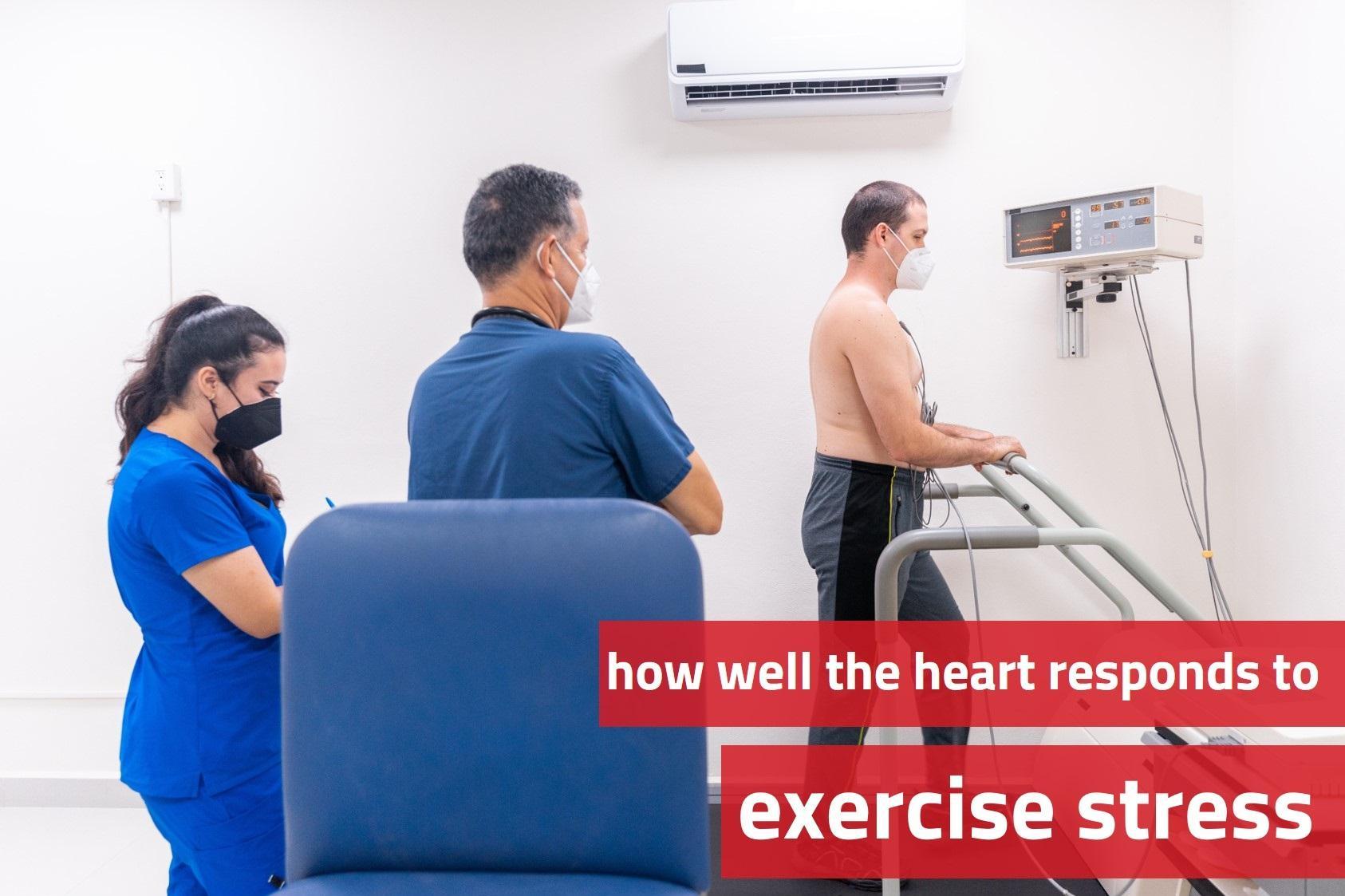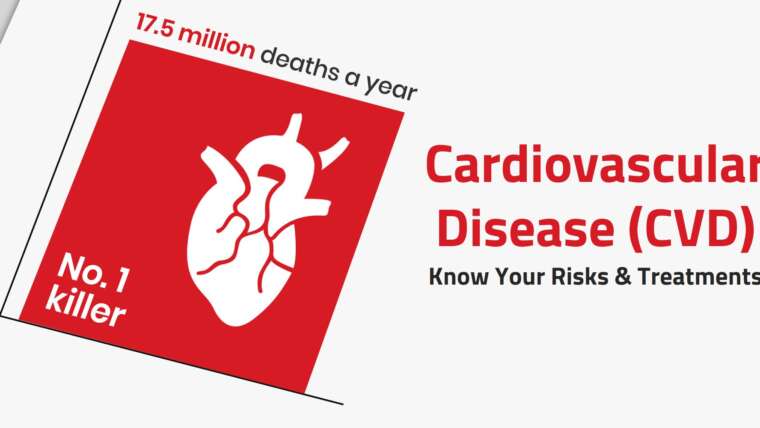Cardiac Exercise Stress Testing – How well the heart responds to exercise ‘stress’
A cardiac stress test or exercise stress test or treadmill test is done to measure how well your heart performs during exercise and the results followed results can determine your risk of heart disease.
In a cardiac exercise stress testing, you walk on a treadmill that makes your heart work progressively harder at an accelerated pace. You may also be asked to avoid any caffeinated drinks for a day or so before your test. Drinking caffeine affects your heart rate and may produce an inaccurate reading.
An electrocardiogram (ECG) monitors your heart’s electrical rhythms. It also measures your blood pressure and monitors whether you have symptoms like chest discomfort or fatigue. Any abnormalities observed in blood pressure, heart rate, or ECG or worsening physical symptoms could point to coronary artery disease (CAD).
When to get a cardiac exercise stress test
Your heart specialist or cardiologist may recommend a cardiac exercise stress test to:
Diagnose coronary artery disease – usually due to a buildup of deposits containing cholesterol and other substances (plaques).
Diagnose heart rhythm problems (arrhythmias) – usually due to improper functioning of electrical impulses that coordinate your heart rhythm. It might be a heart beating too fast, too slow or irregular.
SEE ALSO: Managing AFib with Lifestyle Changes
Guide treatments for heart disorders – If you’ve already been diagnosed with a heart condition, an exercise stress test can help your doctor find out how well treatment is working.
Your doctor may use a stress test to help determine the timing of adult cardiac surgery, such as valve replacement surgery. In some people with heart failure, stress test results may help the doctor determine whether you have any heart valve disorders.
Risk factors
A stress test is generally safe, and complications are rare. But, as with any medical procedure, there is a risk of complications, including: Low blood pressure & Abnormal heart rhythms
But the aforesaid problems should go away soon after you stop exercising. Although exceedingly rare, it’s possible that an exercise stress test could cause a heart attack.
Results
The information gathered during your cardiac exercise stress test shows how your heart functions. If it is normal, you may not need any further tests.
If your stress test results suggest that you might have coronary artery disease or show an arrhythmia, your cardiologist will develop a heart disease treatment plan. Your doctor may also suggest a few more tests to get more accurate and provide more information about your heart.
For treadmill stress test in Ahmedabad, you can consult Dr. Subhash Chaudhari at Sarthak Heart Care Clinic – Senior Interventional Cardiologist in Ahmedabad.




